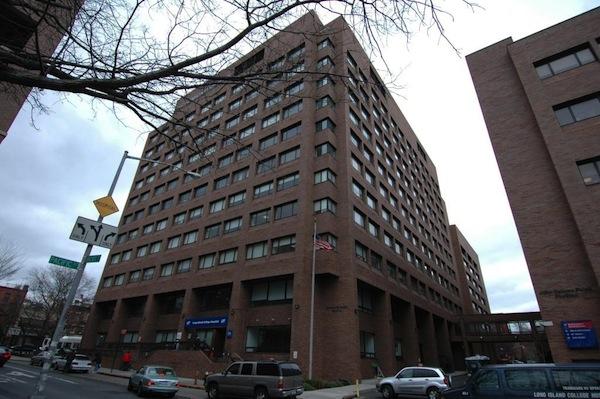Developers submit second round of LICH bids to SUNY
One proposal includes full-service hospital

Long Island College Hospital. Photo: Mary Frost
Details of responses from five developers invited by the State University of New York (SUNY) to submit revamped responses in the controversial bidding war for Brooklyn’s Long Island College Hospital (LICH) were made public on Tuesday.
SUNY had given the developers five days to change their bids in a disputed Request for Proposals (RFP) process.
Four of the five proposals call for closing the 155-year-old hospital and redeveloping its real estate, while providing ambulatory care through partnerships with health providers.
